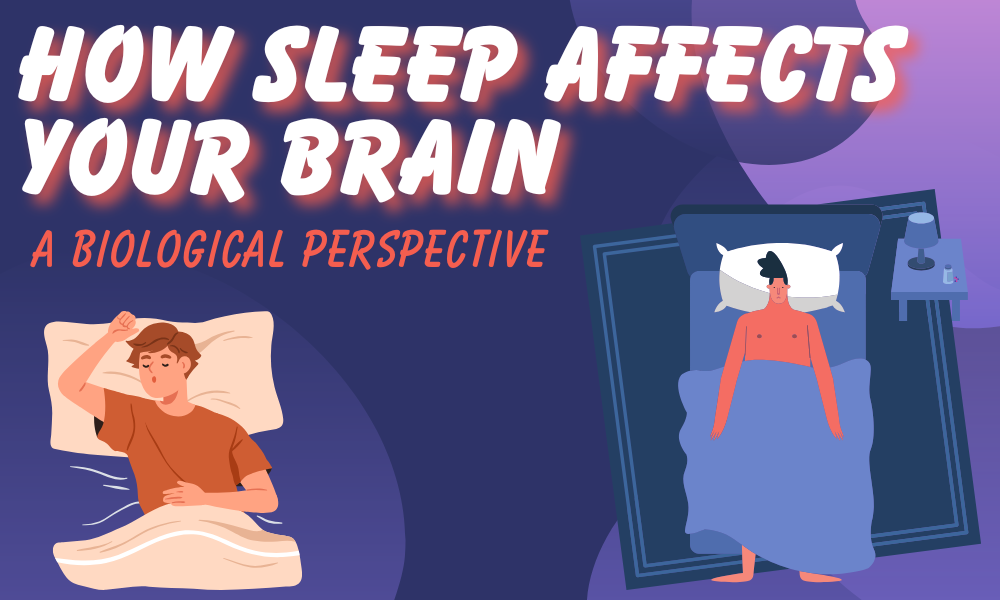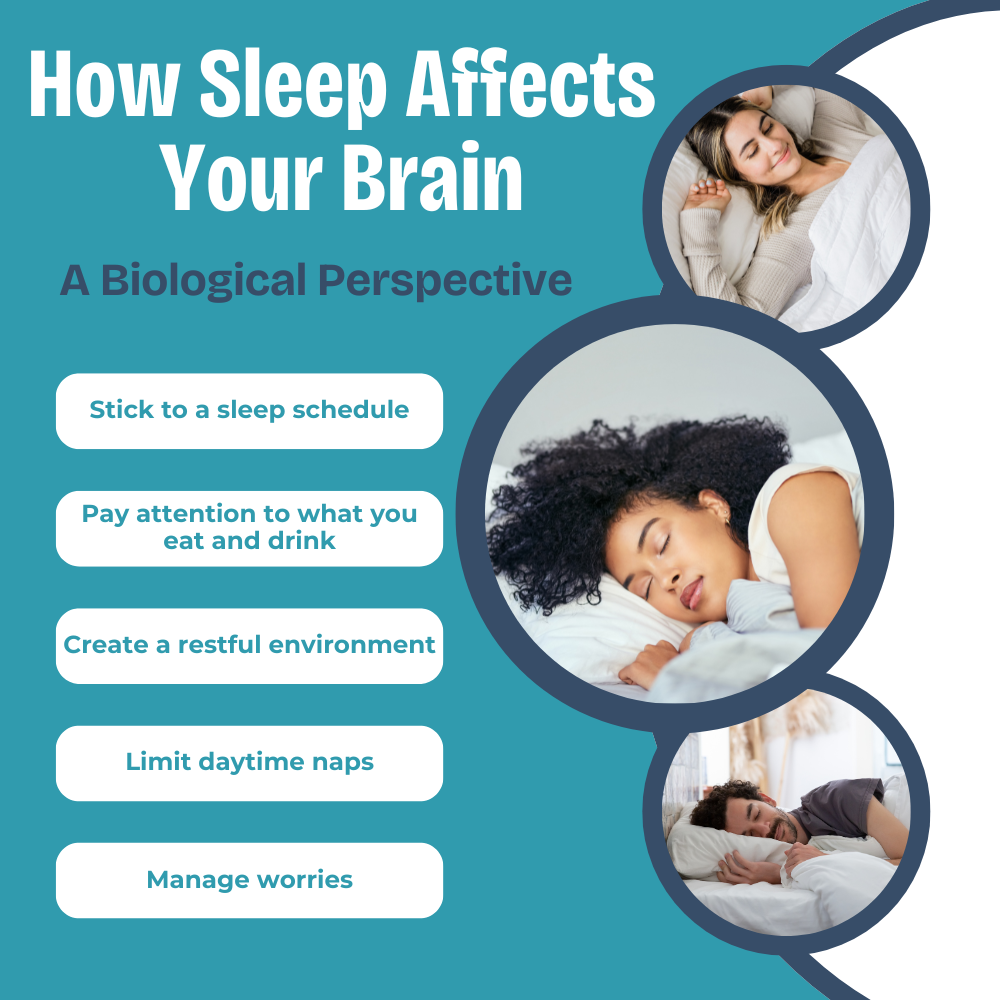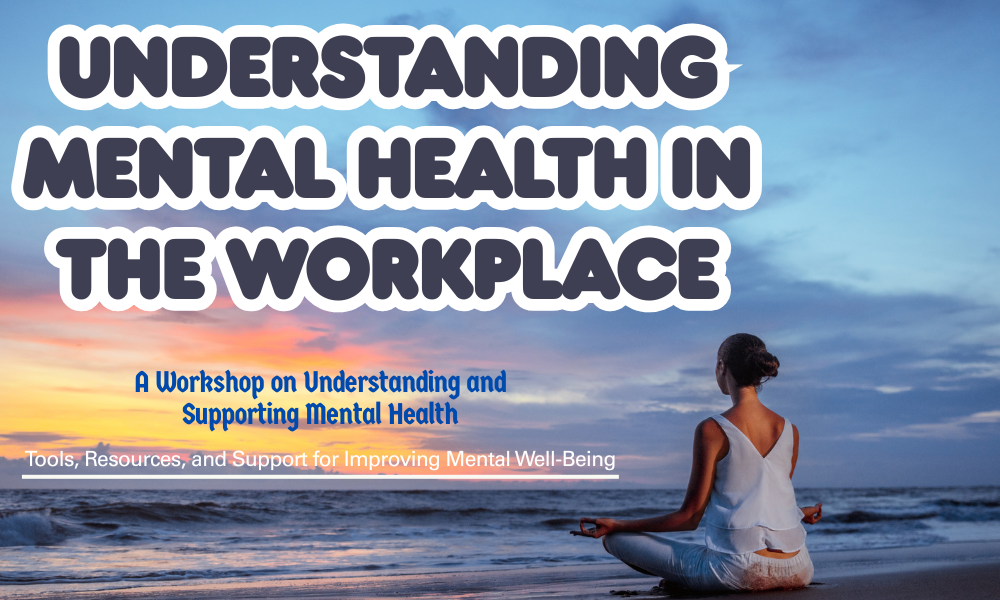How Sleep Affects Your Brain: A Biological Perspective
It’s well-known that sleep is very important. At the end of a long day, there’s nothing better than relaxing before you fall asleep. But on top of the rest, sleep is essential for our health, and it’s especially important for brain function. Good memory, mood balance, learning, and focus all depend on sleep. Here, we discuss the science of sleep and how not getting enough sleep can be damaging to your health.

What Happens in the Brain During Sleep?
Even when you are asleep, your brain stays hard at work. Sleep is of two types: NREM (non-rapid eye movement) and REM (rapid eye movement) sleep. Every period is important for keeping the brain healthy.
- Stage 1 (Light Sleep): The first stage is when you are drifting from being awake to falling asleep. While your brain is starting to slow, you can be awakened quite easily.
- Stage 2: At this point, your heart beats more slowly, your body temperature decreases, and the brain generates groups of activity believed to help you store memories.
- Stage 3 (Deep Sleep): This third stage (also known as deep sleep) is when your body repairs itself and rebuilds. At this time, delta waves are generated in the brain, supporting your body’s recovery and immune system.
- REM Sleep: The majority of our dreams take place while we are in REM sleep. While we sleep, our brain is almost as active as it is while we are awake. REM sleep is associated with how we process our emotions, remember things, and learn new skills.
1. Memory Consolidation
Has it ever happened to you that you stayed up all night studying and then didn’t remember anything the next day? That’s because when we sleep deeply, particularly in REM, it helps to turn our short-term memories into long-term ones. Your brain is active during sleep, helping to sort and organize things you noticed during the day. It determines which information is important and which is not.
The hippocampus, a part of the brain needed for memory, works very hard when we sleep. The day’s experiences are reviewed and reinforce vital connections in the brain while letting go of less important ones. That’s why sleeping well helps us think more clearly and remember things well.
2. Learning and Creativity
It’s not only memory storage that happens during sleep, but also increases your ability to learn and think creatively. Create space in your schedule for your brain to learn what you’re trying to learn, if it is new to you. Some research suggests that those who sleep after learning do better than those who don’t.
REM sleep helps the brain make new pathways between neurons. This skill lets you analyze difficult concepts, resolve problems, and sometimes develop imaginative solutions. Haven’t you ever started the day with a new idea about some issue? That’s your mind working while you sleep.
3. Emotional Regulation
We’ve all noticed how much things can annoy us when we haven’t slept well. There is an explanation for why we feel grouchy sometimes. Having a balance in your emotions is closely connected to how much you sleep. With sleep deprivation, the part of your brain responsible for fear and aggression tends to get overexcited.
While you’re sleepy, the prefrontal cortex simply helps you not act on impulse. The result? There’s an increased chance of you overreacting, feeling nervous, or experiencing your mood changing quickly.
Sleeping poorly all the time increases your chance of having mental health issues such as depression and anxiety. Alternatively, relaxing sleep helps keep your emotions steady, so you are better able to cope with stress.
4. Detoxification of the Brain
Most people are unaware that their brain gets rid of toxins while they sleep. Each day, your brain cells get busy and generate waste, much like any factory would. Among these waste products is beta-amyloid, a protein linked to Alzheimer’s disease. Building up over time, too much plaque in the brain has been associated with a decline in thinking abilities.
The glymphatic system in your brain works best when you sleep deeply. It removes toxins from the body, much like a team of cleaners doing their job at night. A lack of sleep interrupts the cleansing process in the brain, making you more likely to develop neurodegenerative diseases.

5. Focus, Attention, and Decision-Making
If your brain is tired, it won’t function at its best. When you don’t get enough sleep, it can be hard to stay focused, concentrate, and make choices. The reason for this is that sleep deprivation impacts the frontal lobe, part of the brain that’s responsible for deep thinking and solving problems.
Did you ever realize that getting enough sleep makes every task smoother? Performing easy tasks strains your brain, and your ability to ignore information that doesn’t matter is less. Because of this mind fog, you may make mistakes, judge situations improperly, and react more slowly than usual.
The Long-Term Effects of Poor Sleep
If poor sleep happens every night, it could seriously harm your brain over the long term.
Losing memory or experiencing difficulty thinking
- High chance of Alzheimer’s and several other kinds of dementia
- Reduced ability of the immune system
- Disorders of the mind, including anxiety and depression
- A lowering of the brain’s ability to modify itself
Not getting enough sleep on a regular basis gives your brain the same kind of function decline as someone older.
How Much Sleep Do You Really Need?
People’s sleep needs are different depending on their age and daily habits, though here are some averages:
- People between 18 and 64 years old need to sleep between 7 and 9 hours every day.
- Recommended time for teens: 8–10 hours every day
- Children should get 9–12 hours of sleep each night.
- When you are 65 or over, you need 7–8 hours of sleep.
Having decent skills is more important than having many skills. It is just as bad for your health to have disrupted sleep as it is to get very little.
Inadequate sleep not only impacts mental performance but also elevates stress and anxiety levels. If you’re finding it challenging to cope with stress in a natural way, check out our Top 5 Easy and Natural Remedies For Stress And Anxiety to discover effective methods to regain balance.
Tips for Better Sleep and a Healthier Brain
If you’re looking to support your brain, start with getting enough sleep. Here’s what you should do:
Wake up and go to sleep at the same times every day.
- Be aware of your screen time: It may keep your body from sleeping well.
- In the evening, read a book, warm up in a bath, or find time to do some deep breathing.
- Try not to eat or drink things with caffeine late in the evening.
- Your bedroom should be kept cool, dim, and peaceful.
Conclusion
Rest is essential, but sleep is also biological and essential for your brain’s health. Each night, your brain depends on sleep to form memories, handle emotions, and stay clear-thinking.
Even when productivity is celebrated, don’t forget to include rest in your everyday life. If you want your mind to be sharp, your learning to speed up, and your health to improve, you have to sleep enough. Your brain works best when you combine it with exercise.
Allow your mind to relax tonight by getting a full night of sleep. Clear your thoughts today and you’ll be more focused later.
Author’s Bio
Author Manali is professional content writer; she is always exciting to express thoughts & insights into wonderful words on various topics.



















